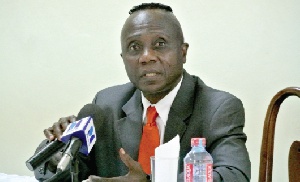Dr. John Kwakye, Senior Economist of the Institute of Economic Affairs (IEA) says interest payments are generally expected to rise due to high borrowing and interest rates.
He said wage payments are also likely to increase due to the implementation of the Cost of Living Allowance (CLA) and payroll management challenges.
Government paid a total of GH¢4,397.0 million as interest on loans it accessed last year, 37.6 percent higher than the budget target of GH¢3,194.4 million.
Of this amount, domestic interest payment constituted 86.2 percent, recording 47.2 percent, which was higher than the budget target.
Dr. Kwakye, in an interview with the media in Accra recently, urged government to implement tax measures in the budget, broaden the tax bases, reduce tax exemptions, tackle tax fraud and corruption and recover misappropriated public funds.
He called for the enforcement of spending limits for Ministries, Departments and Agencies (MDAs) and the implementation of public sector reforms to downsize the sector, as well as increase productivity and value for money.
This, he said, could include rationalization of ministries and reduction in the size of government.
Dr. Kwakye also remarked that “in this era of liquidity crunch, government must send a strong signal that it wants to take a lead in the needed belt tightening and sacrificing by making serious cuts in spending.”
That, he said, would go a long way to help quell the sprouting labour agitations.”
He said even though an economic growth target of 8.0 per cent had been set for 2014, many analysts expect growth to be lower.
On the outlook for the second half of 2014, he said despite the Finance Minister revising the target from 8.0 to7.1 per cent, achieving it would be challenging.
The slow economic growth was a result of erratic energy supply and other production bottlenecks, including poor and in some cases deteriorating infrastructure, high cost of utilities, and high cost of credit, low commodity prices, low public investment and macroeconomic instability, Dr. Kwakye stated.
However, he said potentially higher oil output and gas production should give some impetus to growth.
Business News of Friday, 1 August 2014
Source: Daily Guide

















